Usualmente nos gusta experimentar un poco con diferentes cultivos para ver la resistencia que tienen estos al ambiente de la zona semi árida, en estos últimos veces el clima ha cambiado completamente y estamos en una zona donde la precipitación es baja, sin embargo las ultimas 6 semanas ha llovido muy seguido, y luego ha salido el imponente sol, esto no es bueno para ningún cultivo pues aquí pueden comenzar las manchas o enfermedades en las hojas y de igual manera se pueden quemar las hojas mas jóvenes de las plantas. Por ello hay que tener mayor cuidado y proteger mejor las plantas que tenemos.
Usually we like to experiment a little with different crops to see the resistance that these have to the environment of the semi-arid zone, in these last times the climate has changed completely and we are in an area where rainfall is low, however the last 6 weeks it has rained very often, and then the imposing sun has come out, this is not good for any crop because here can begin the spots or diseases on the leaves and also can burn the youngest leaves of the plants. This is why we must be more careful and protect the plants we have.
El método que utilizamos para regar las plantas es por goteo, pues ahorra una gran cantidad de agua, sin embargo hay otros cultivos que si requieren la manera tradicional llamada "inundación" que básicamente es inundar una parcela o canales donde las plantas son sembradas y aquí se mantiene mucho mas la humedad y ellas pueden mantenerse frescas todo el día.
The method we use to water the plants is by drip, because it saves a great amount of water, however there are other crops that require the traditional way called "flooding" which basically is to flood a plot or canals where the plants are planted and here the humidity is maintained much more and they can stay cool all day.

Para los cultivos como cebollín, ajo porro, maiz, remolacha se necesita el método antiguo, ya que son cultivos que requieren gran cantidad de agua al día. Por lo cual los canales deben hacerse a mano por los trabajadores, solo ellos saben hacerlos para que el agua tenga una pendiente y llene todo el canal, de esta manera se puede regarse uniformemente.
El canal debe estar limpio de todo tipo de maleza y rocas, y se hace no muy profundo ni muy ancho, ya que es experimental.
For crops such as scallions, garlic, corn and beets, the old method is needed, as these crops require a large amount of water per day. Therefore, the canals must be made by hand by the workers, only they know how to make them so that the water has a slope and fills the entire canal, in this way it can be irrigated uniformly.
The canal must be clean of all weeds and rocks, and it is made neither too deep nor too wide, since it is experimental.
De igual manera al halar la tierra del centro hacia afuera se debe compactar un poco con la misma herramienta, esto para que el agua no se desborde y en la parte superior donde se compacta se sembraran las plantas. Solo se necesita que las raíces absorban el agua y crezcan buscando la misma.
Similarly, when pulling the soil from the center outwards, it should be compacted a little with the same tool, so that the water does not overflow and the plants will be planted in the upper part where it is compacted. It is only necessary that the roots absorb the water and grow looking for it.
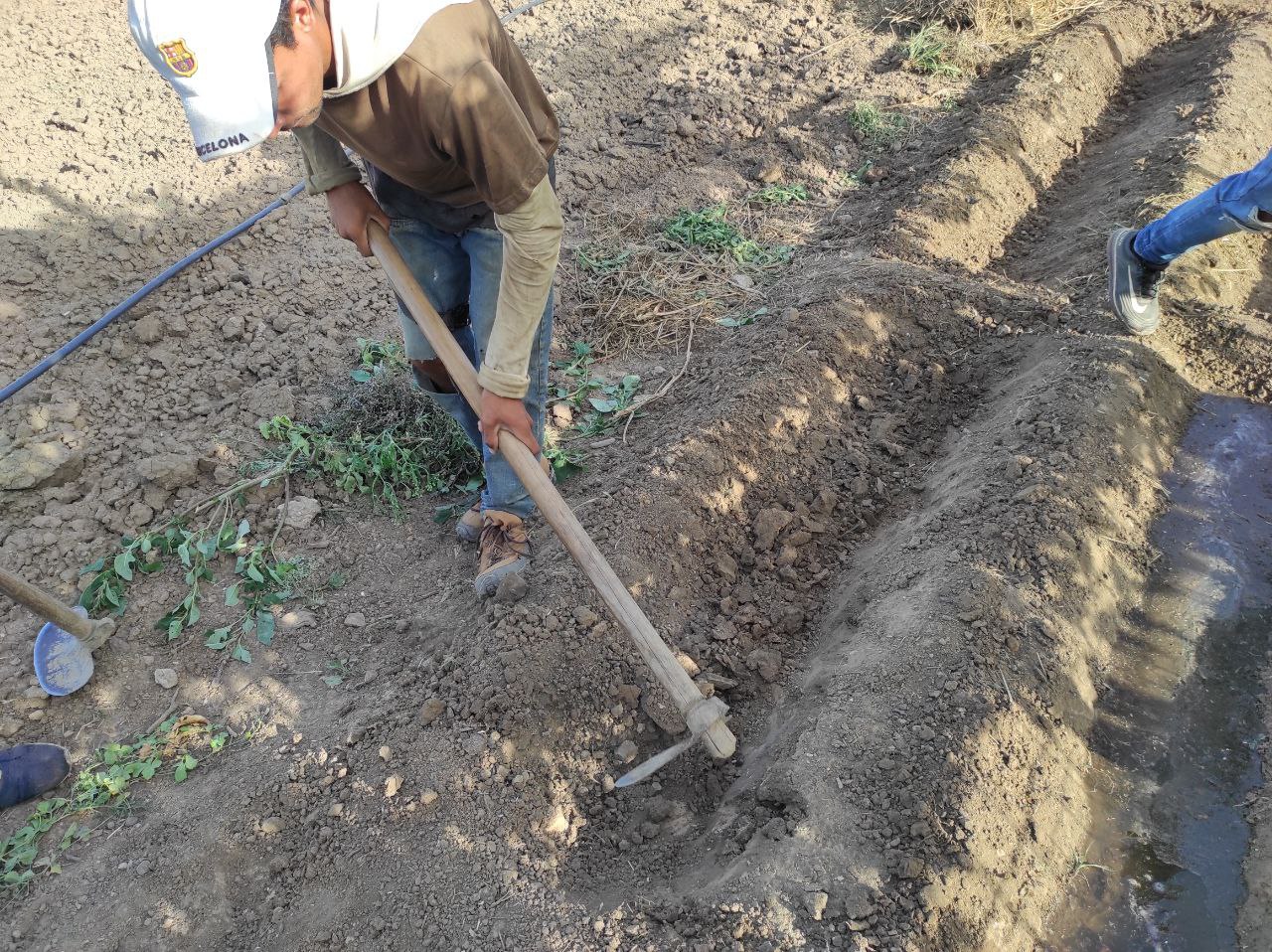
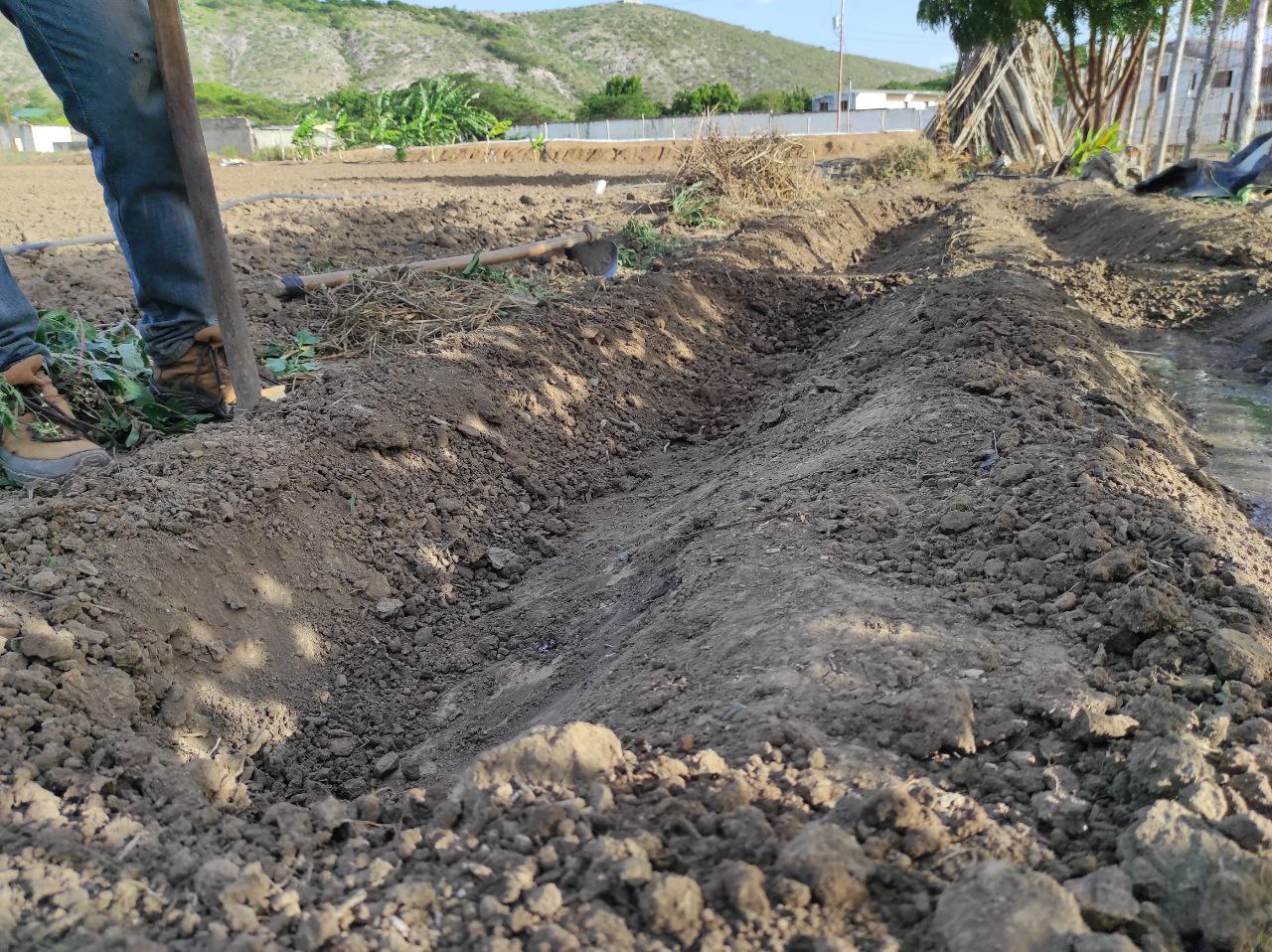
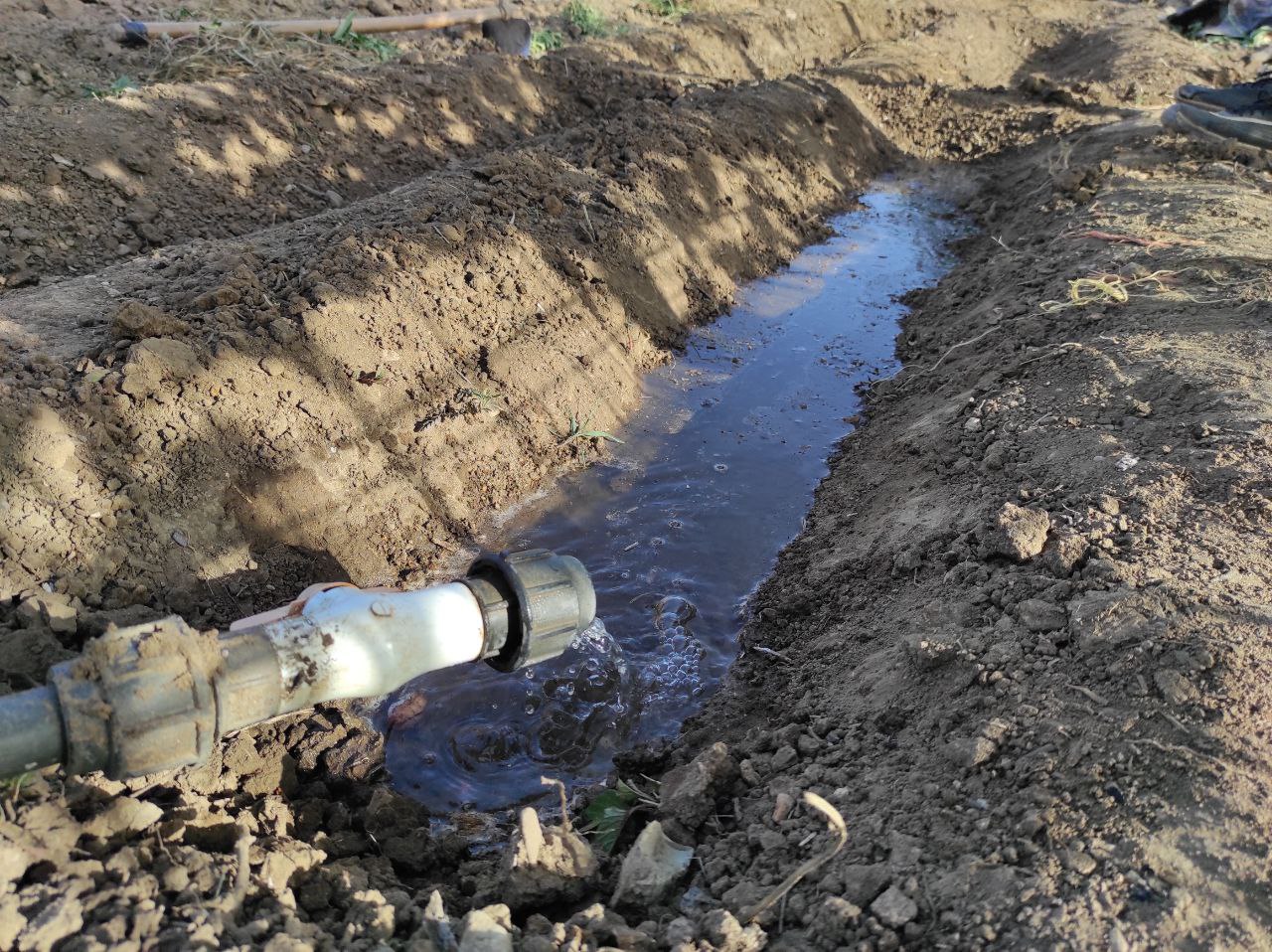
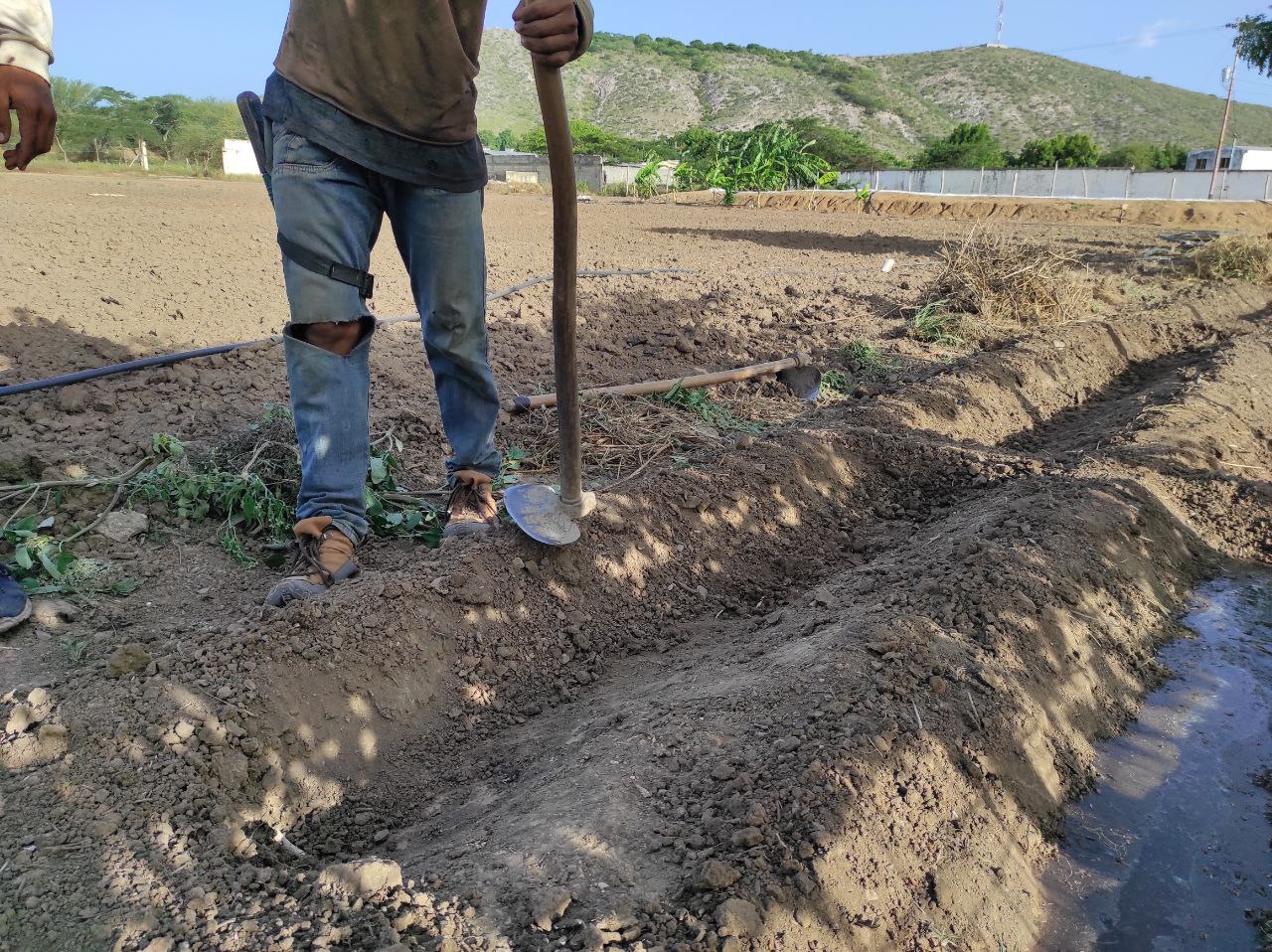
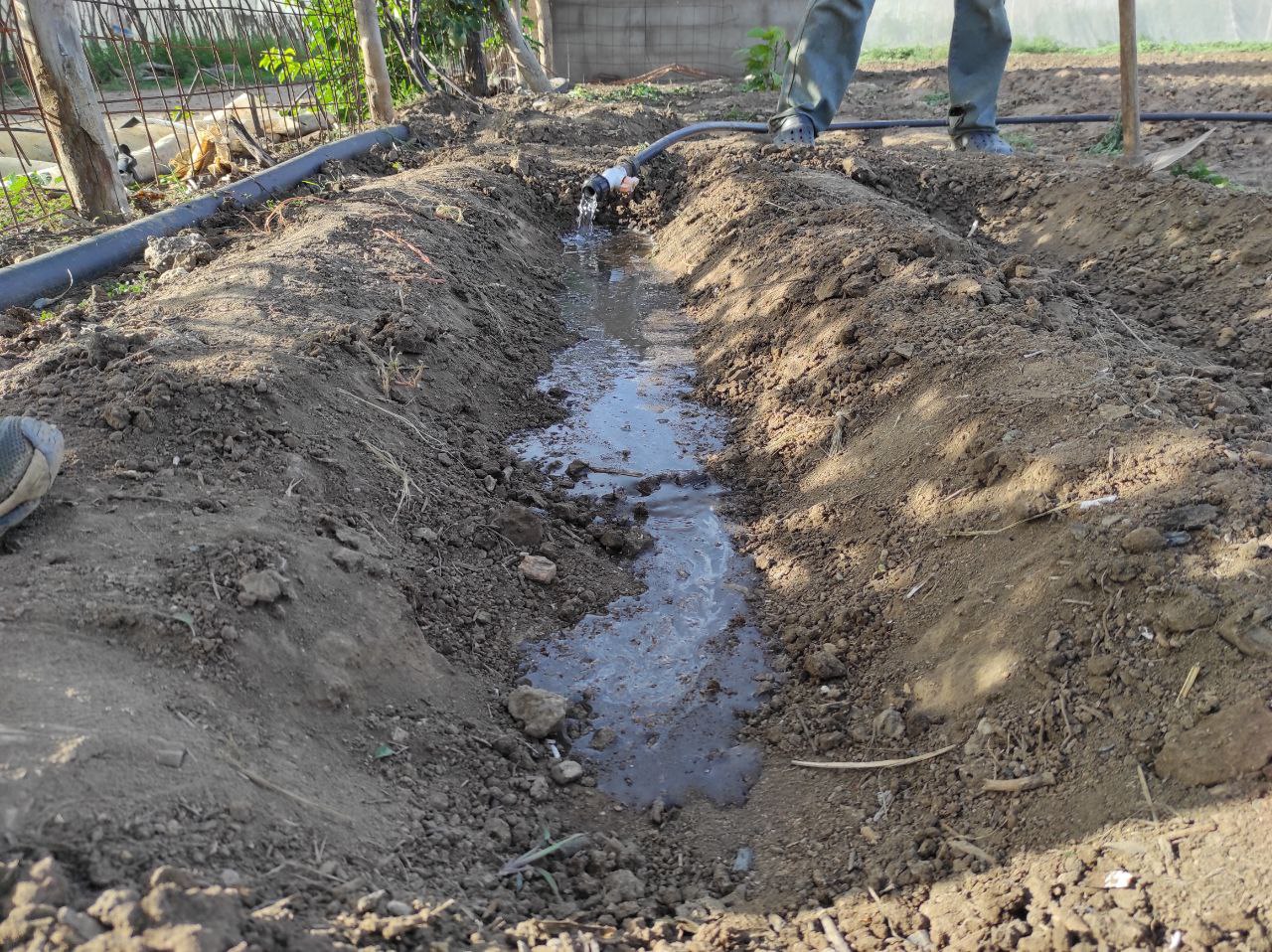
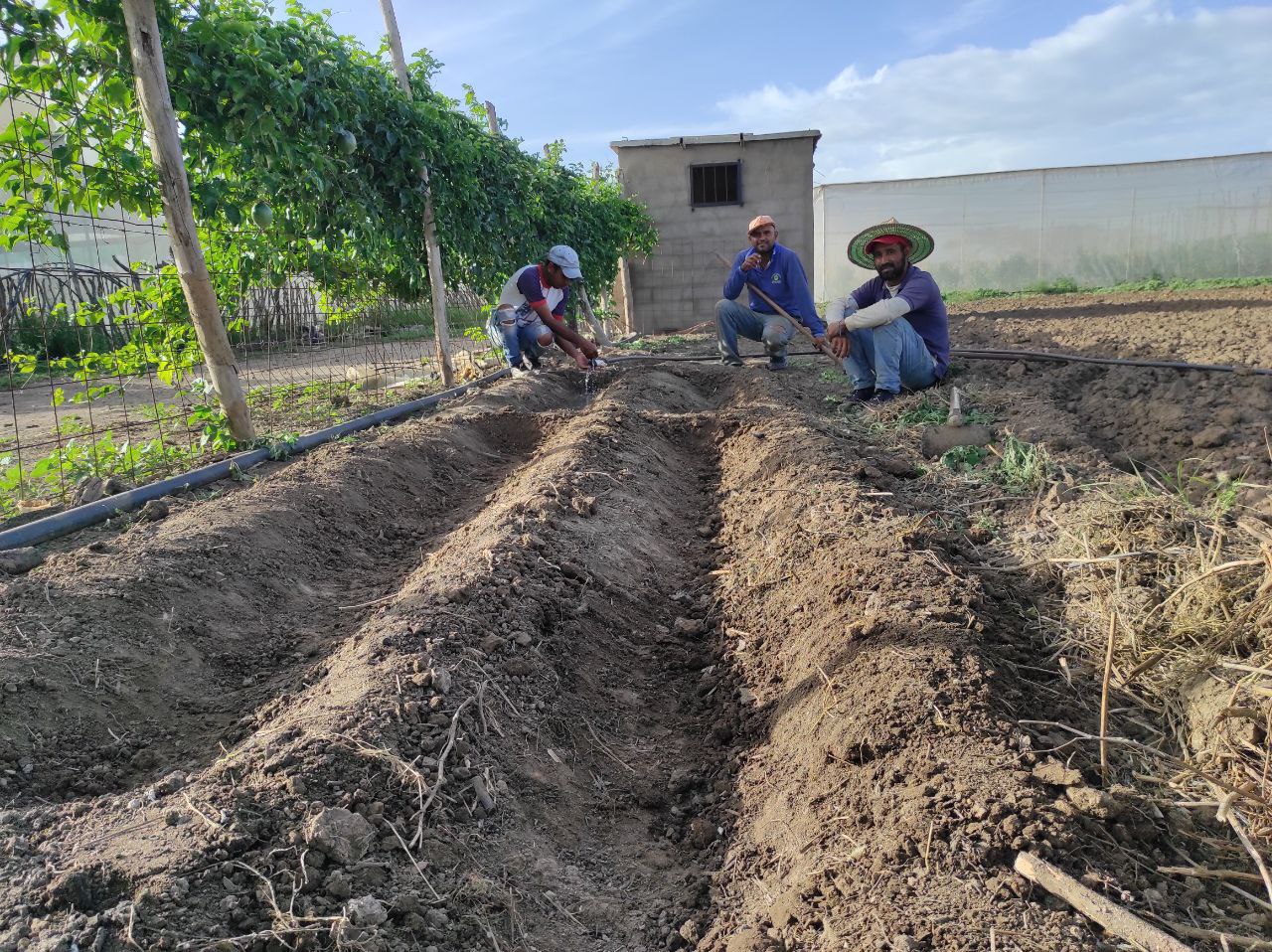
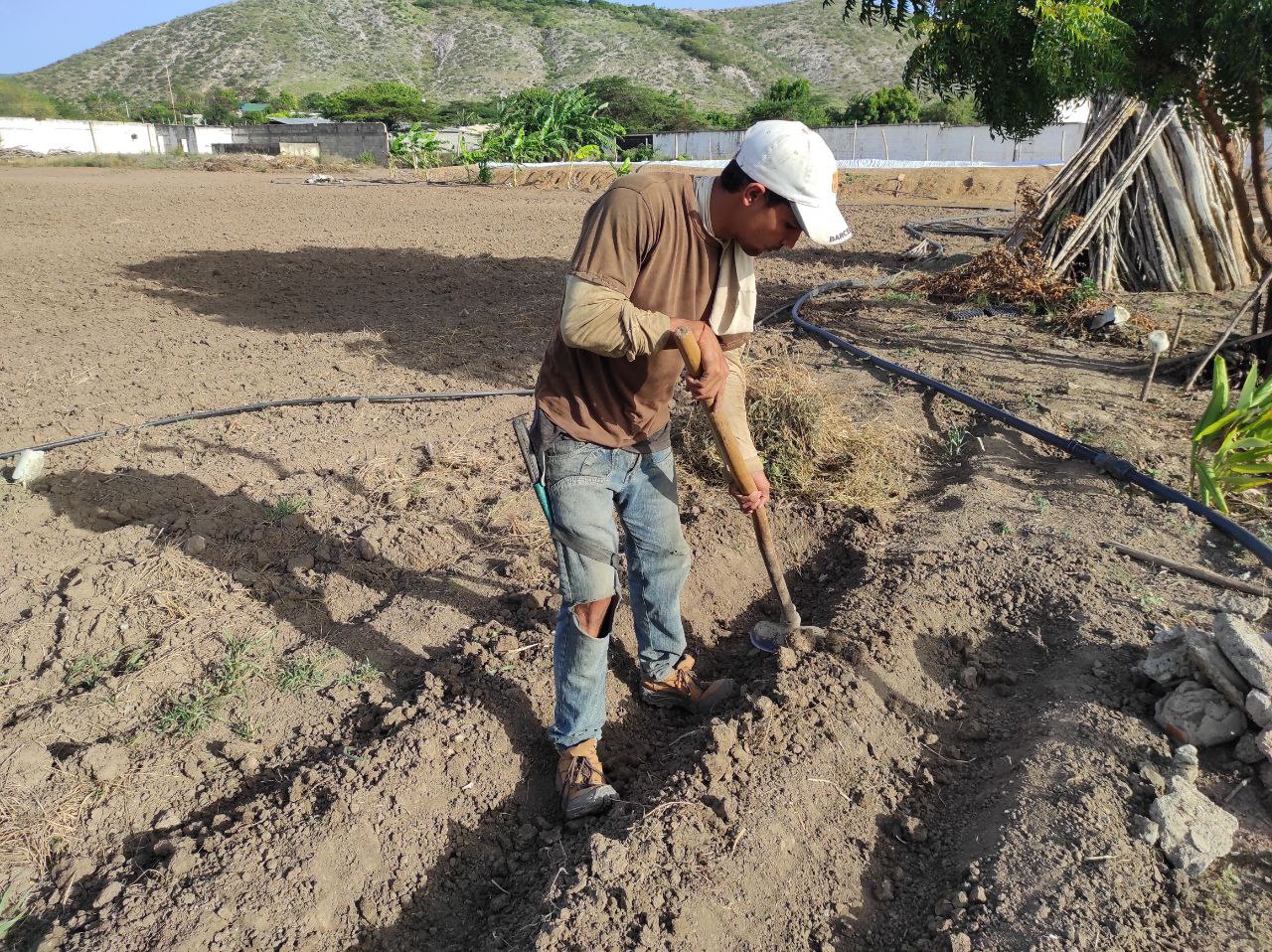
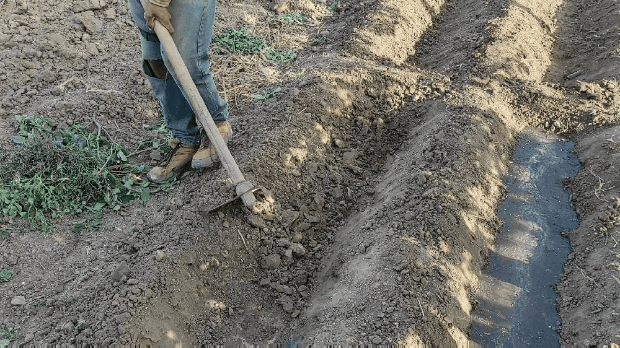
El cebollín es un cultivo que tarda aproximadamente 9 días en germinar, usualmente se tapa un poco con algo que le de sombra para que germine mucho mas rápido, o se lleva a un sitio que tenga sombra para que crezca mas rápido. Cuando la planta tiene 3 hojas se puede trasplantar pero normalmente se espera que la planta tenga entre 15-20 cm para trasplantarla, al momento de hacerlo se le hace un recorte a las hojas para que el tallo comience a engrosar.
The chives is a crop that takes approximately 9 days to germinate, usually it is covered a little with something that gives shade to germinate much faster, or it is taken to a place that has shade to grow faster. When the plant has 3 leaves it can be transplanted but normally it is expected that the plant has between 15-20 cm to transplant it, at the moment of doing it a cut is made to the leaves so that the stem begins to thicken.
El semillero de cebollín es un poco extraño, la semilla grande tiene el aspecto de césped alto, y suele sembrarse lanzándolas en una especie de "plancha" un lugar alto donde hay tierra compacta, y luego se le esparce polvillo negro que es muy fino y de esta manera ella puede nacer sin problemas.
Los mismos semilleros tienen a su alrededor una valla de malla, plástico o cualquiera objeto o planta que pueda detener el paso de animales que se coman las pequeñas plantas, ya que requieren de un cuidado extremo.
The chive seedbed is a little strange, the large seed has the appearance of tall grass, and is usually sown by throwing them in a kind of "plancha" a high place where there is compact soil, and then sprinkle black powder that is very fine and in this way she can be born without problems.
The same seedbeds have around them a fence of mesh, plastic or any object or plant that can stop the passage of animals that eat the small plants, as they require extreme care.
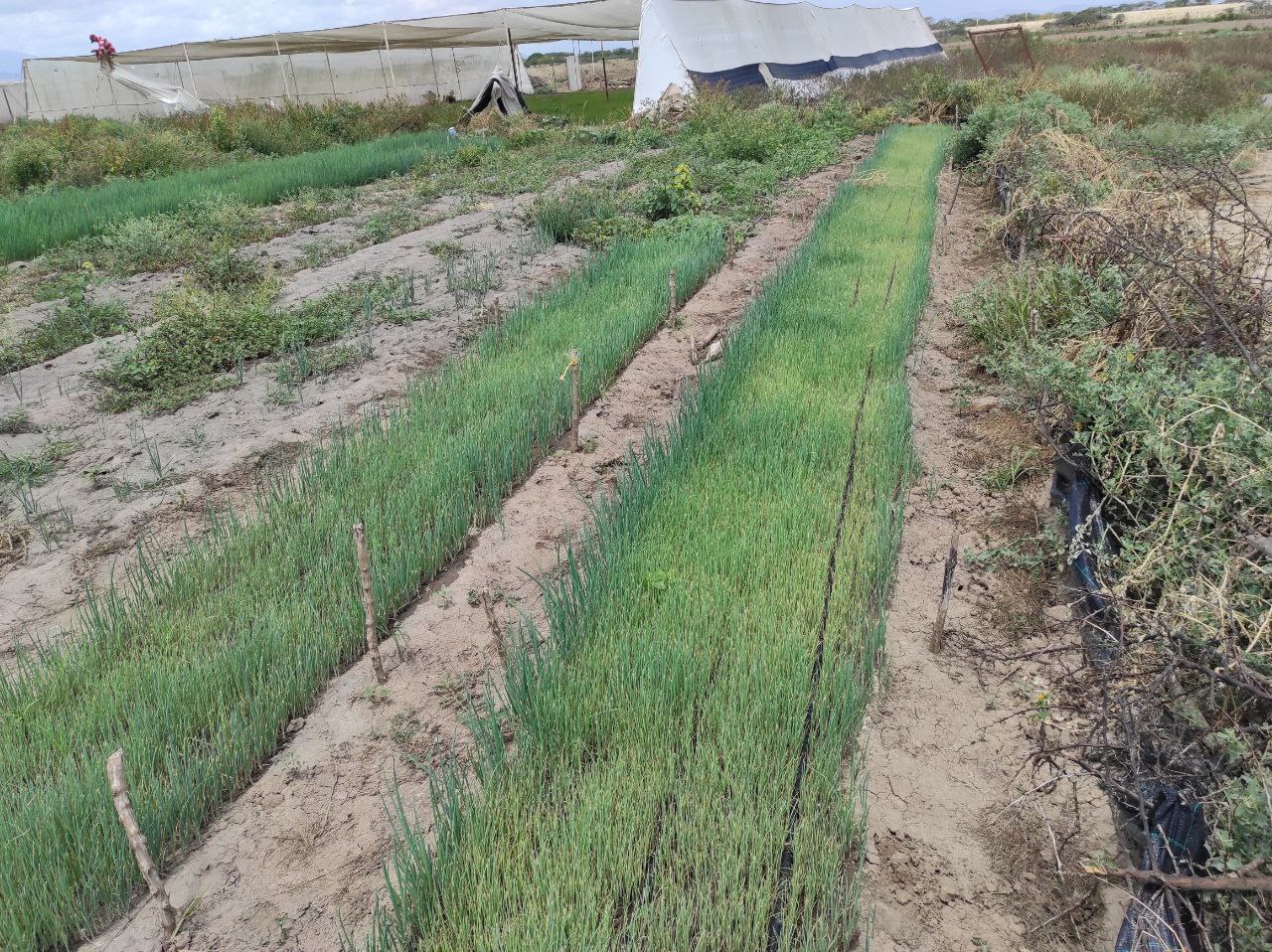
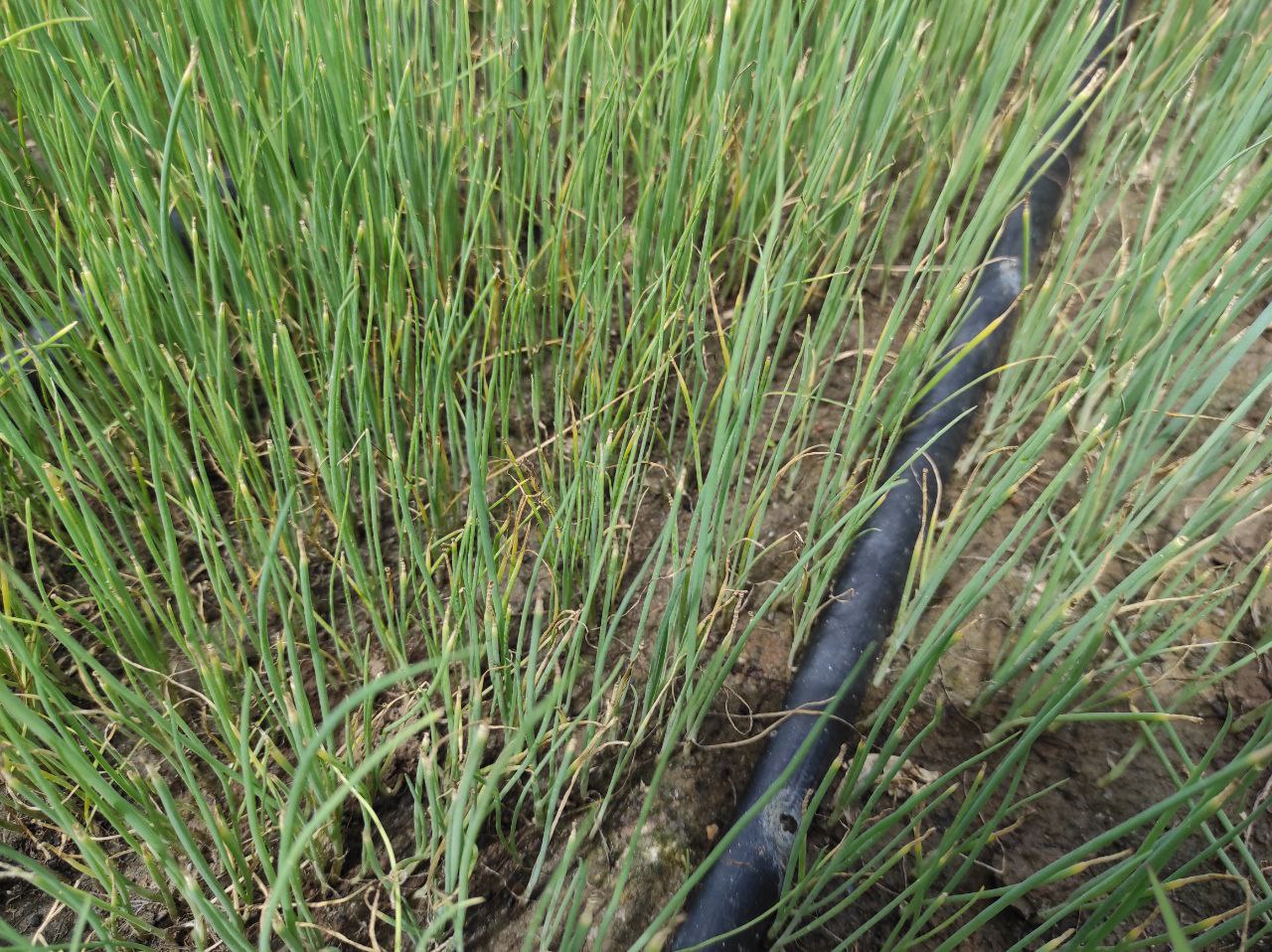
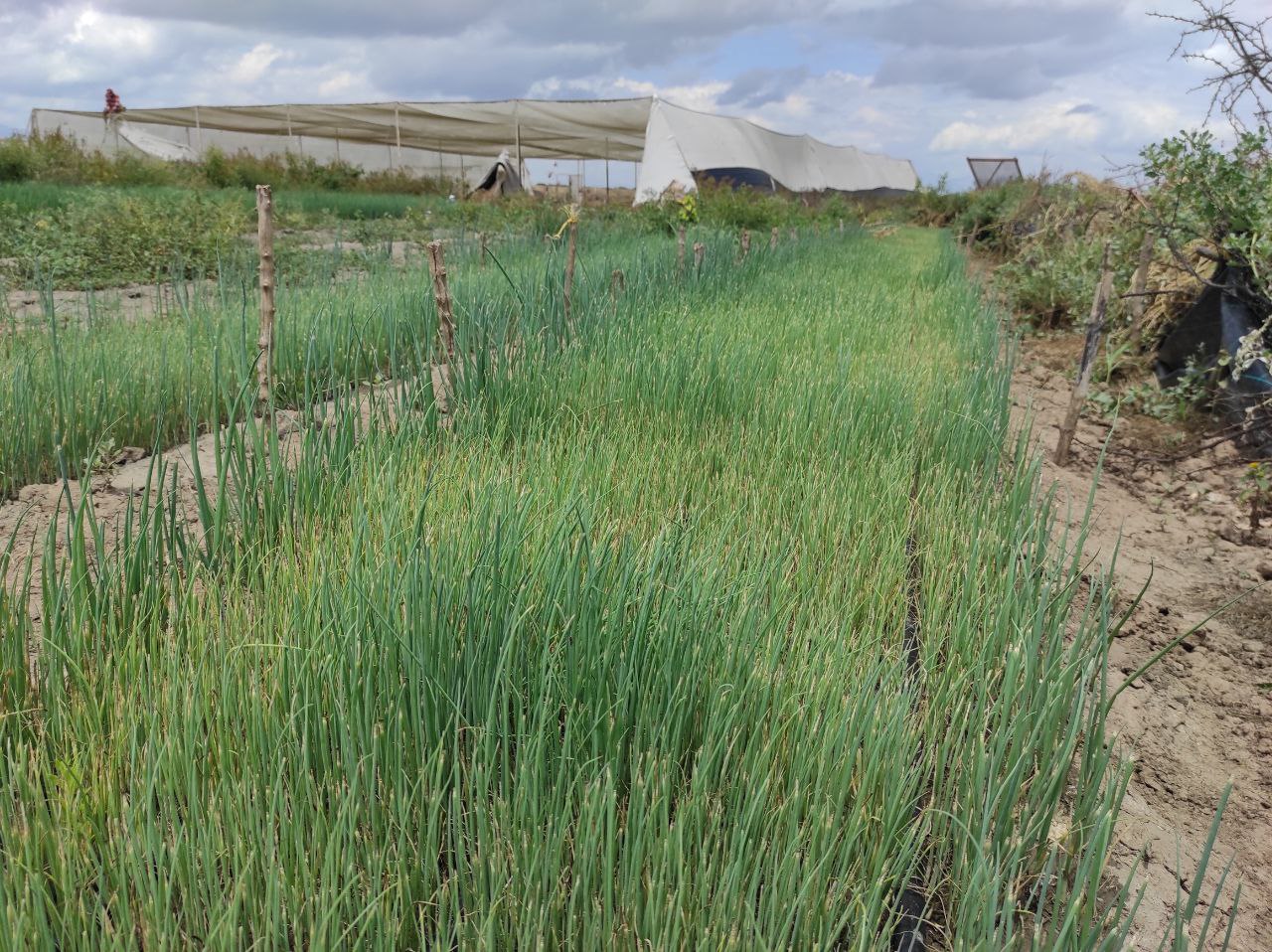
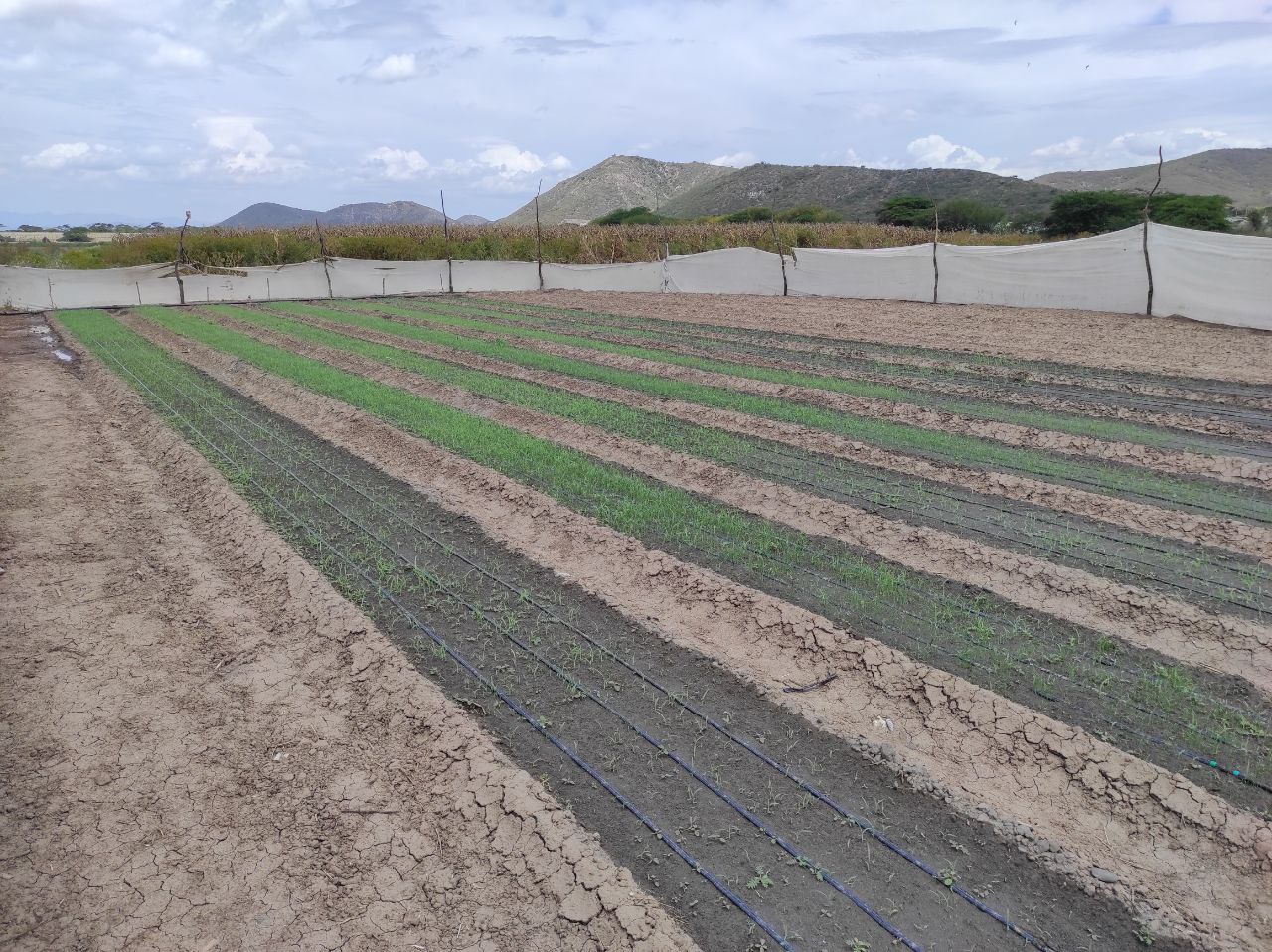
.jpg)
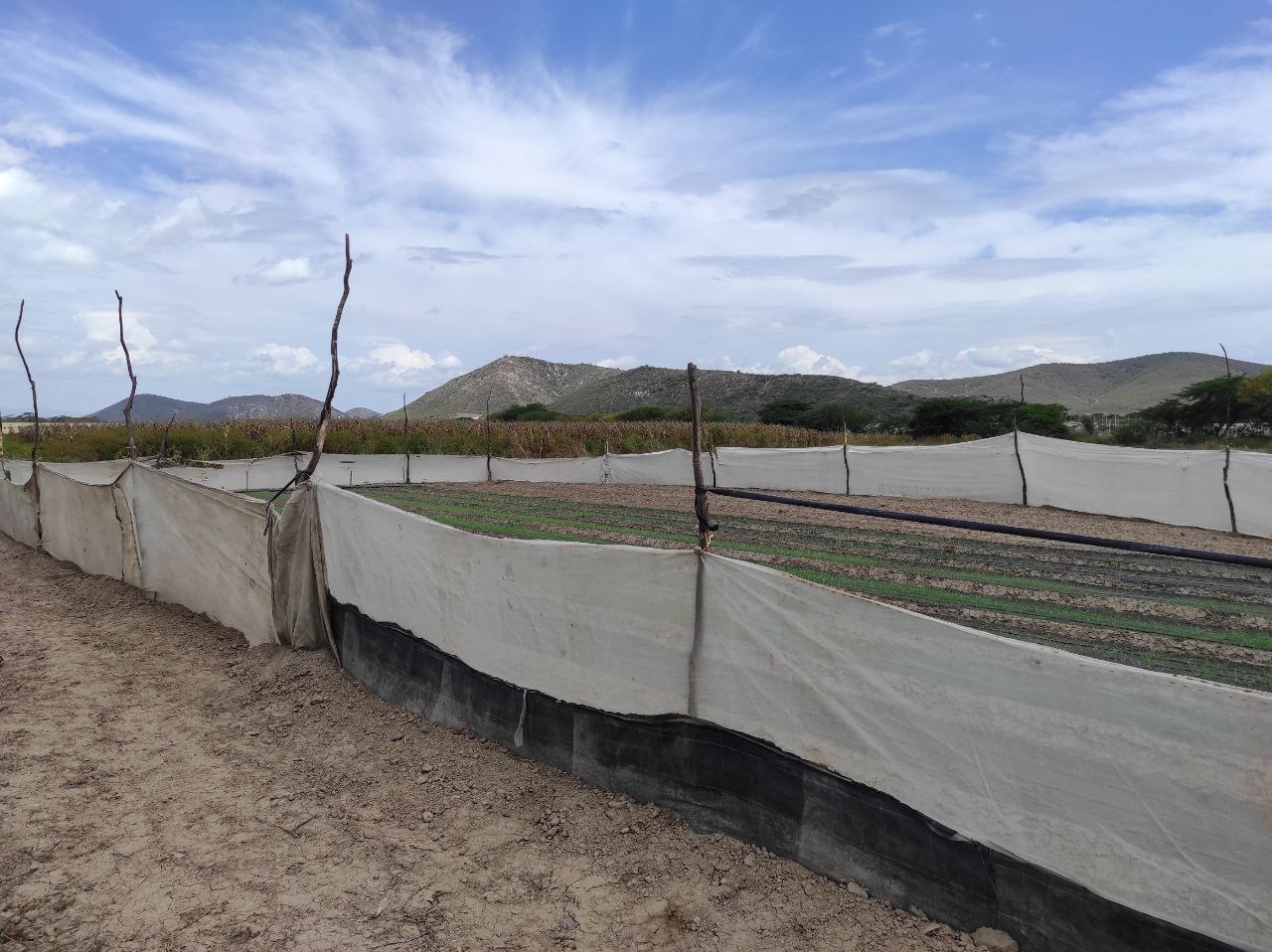
El cultivo tarda 90 días en estar listo para su cosecha y venderlo, y lo único que requiere en todo el ciclo, es agua, un poco de formula npk cuando tenga 50 días, insecticida para el gusano rayador y fungicida en polvo para que el roció no queme las hojas.
Los surcos o canales que tenemos ya tienen un poco de cilantro que nació en perfectas condiciones, sembramos una gran cantidad de semilla de cebollín y ajo porro, esperamos hacer otros canales para sembrar mas, ya que 150gr equivalen a casi una hectárea a campo abierto.
The crop takes 90 days to be ready to be harvested and sold, and the only thing it requires during the whole cycle is water, a little npk formula when it is 50 days old, insecticide for the striper worm and powdered fungicide so that the spray does not burn the leaves.
The furrows or channels that we have already have a little cilantro that was born in perfect conditions, we sowed a large amount of chives and garlic seed, we hope to make other channels to sow more, since 150gr is equivalent to almost a hectare in open field.
Es uno de los cultivos que tienen gastos muy bajos, pero requiere factor suerte y mercado para tener un buen precio y que sea rentable. Se que el paquete de 5kg costaba 4$, pero hoy en día esta en 1$, lo cual es muy barato.
It is one of the crops that have very low costs, but it requires luck and market factor to have a good price and be profitable. I know that the 5kg package used to cost 4$, but today it is at 1$, which is very cheap.
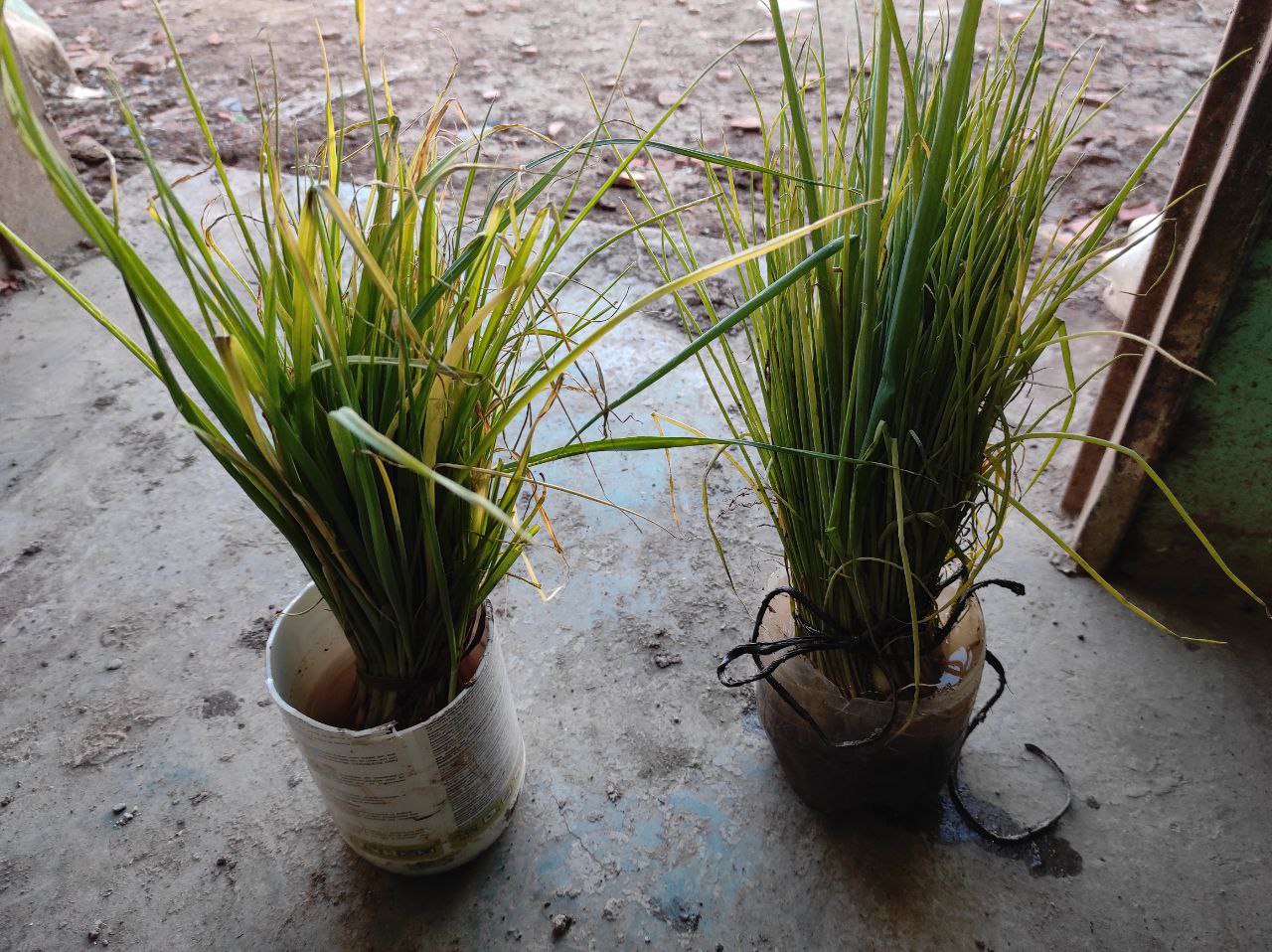
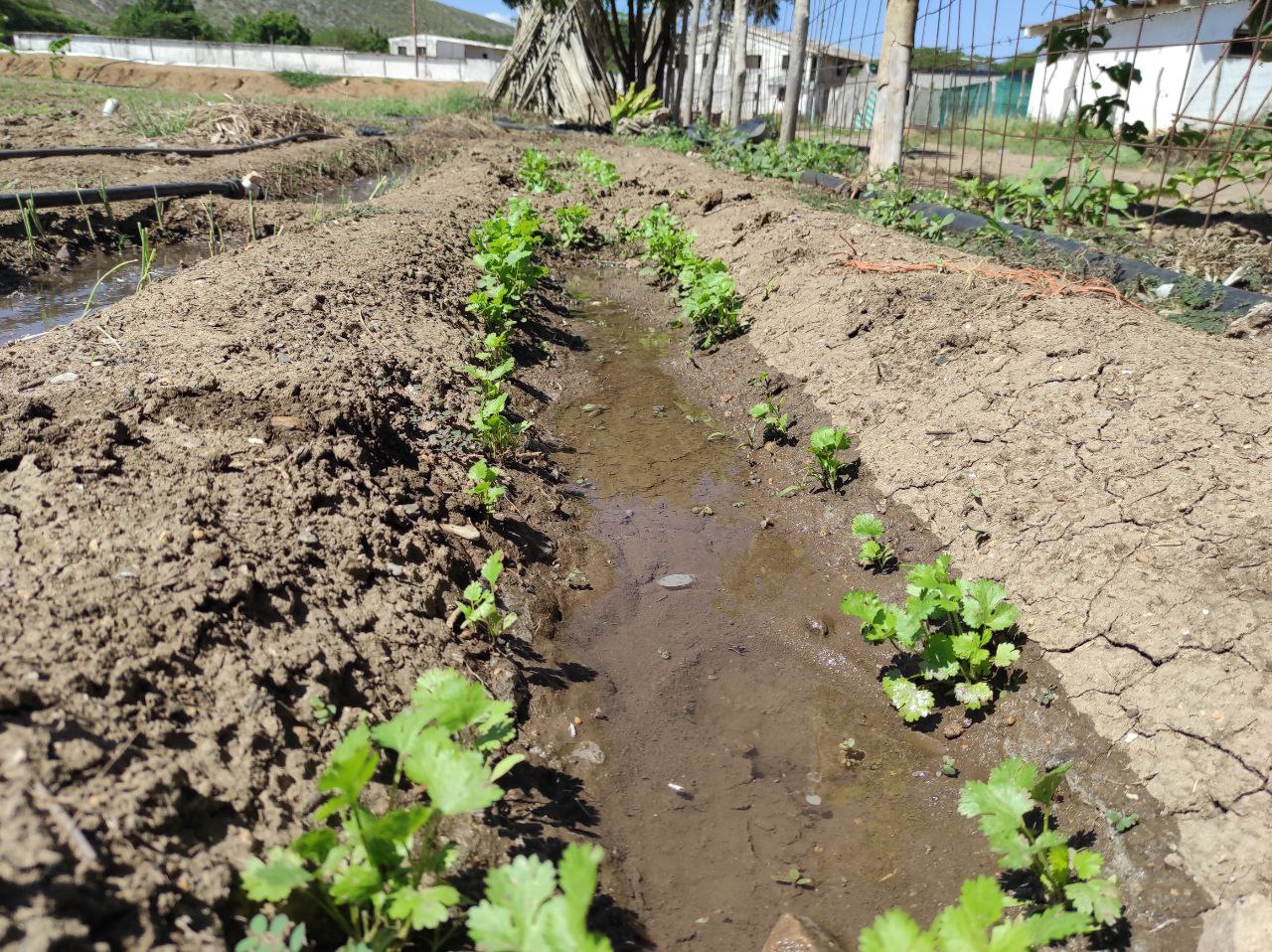
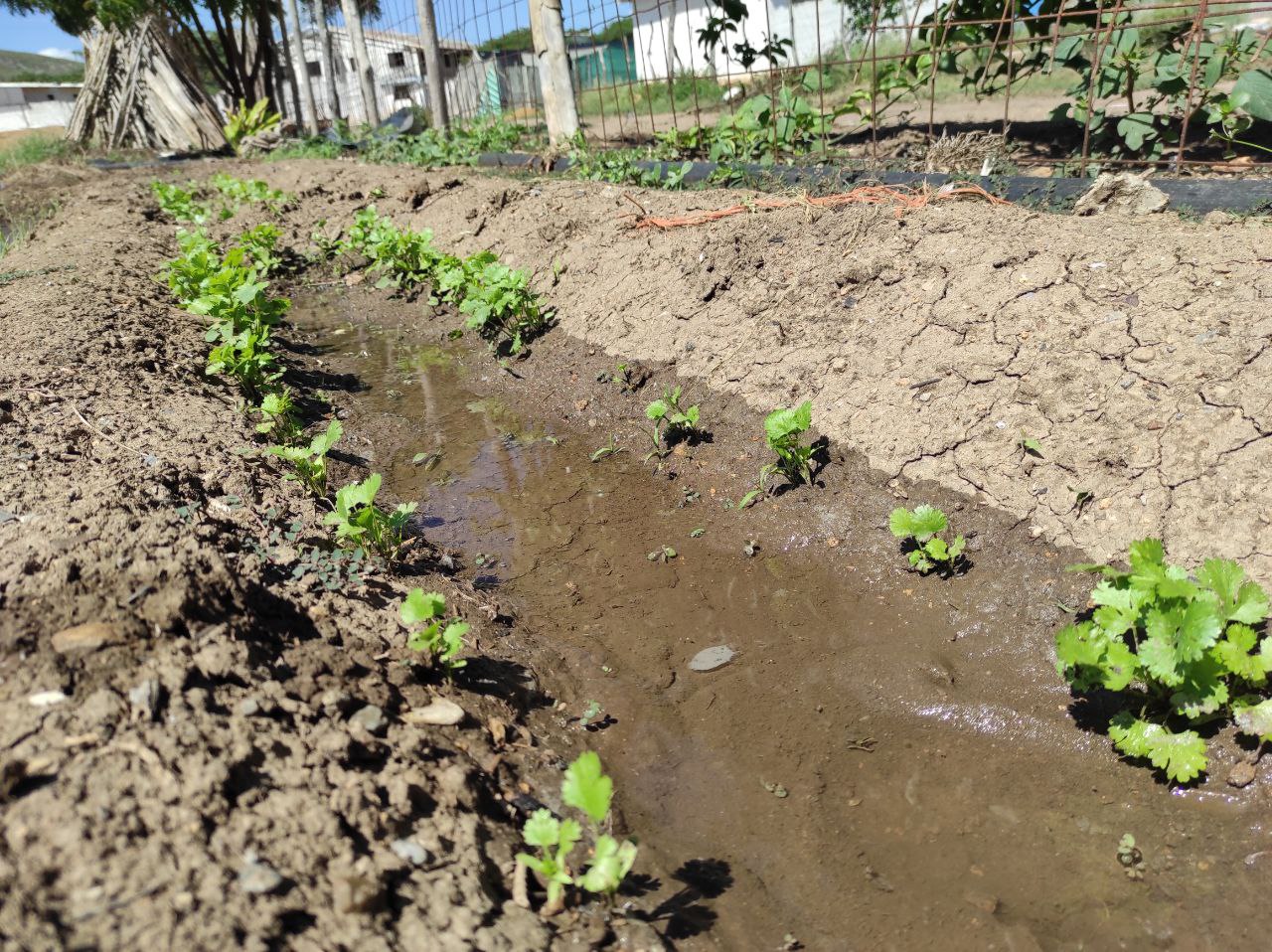
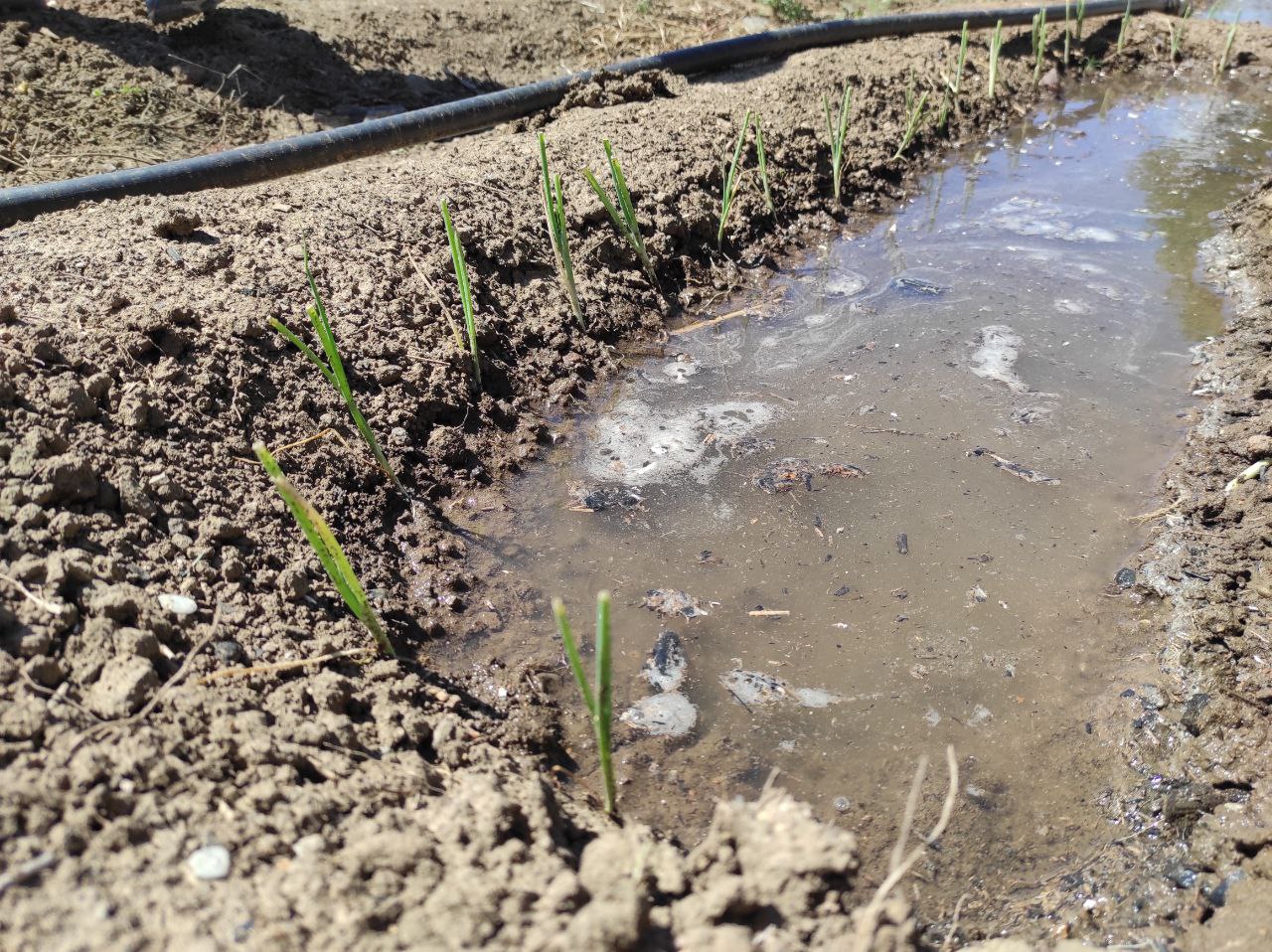
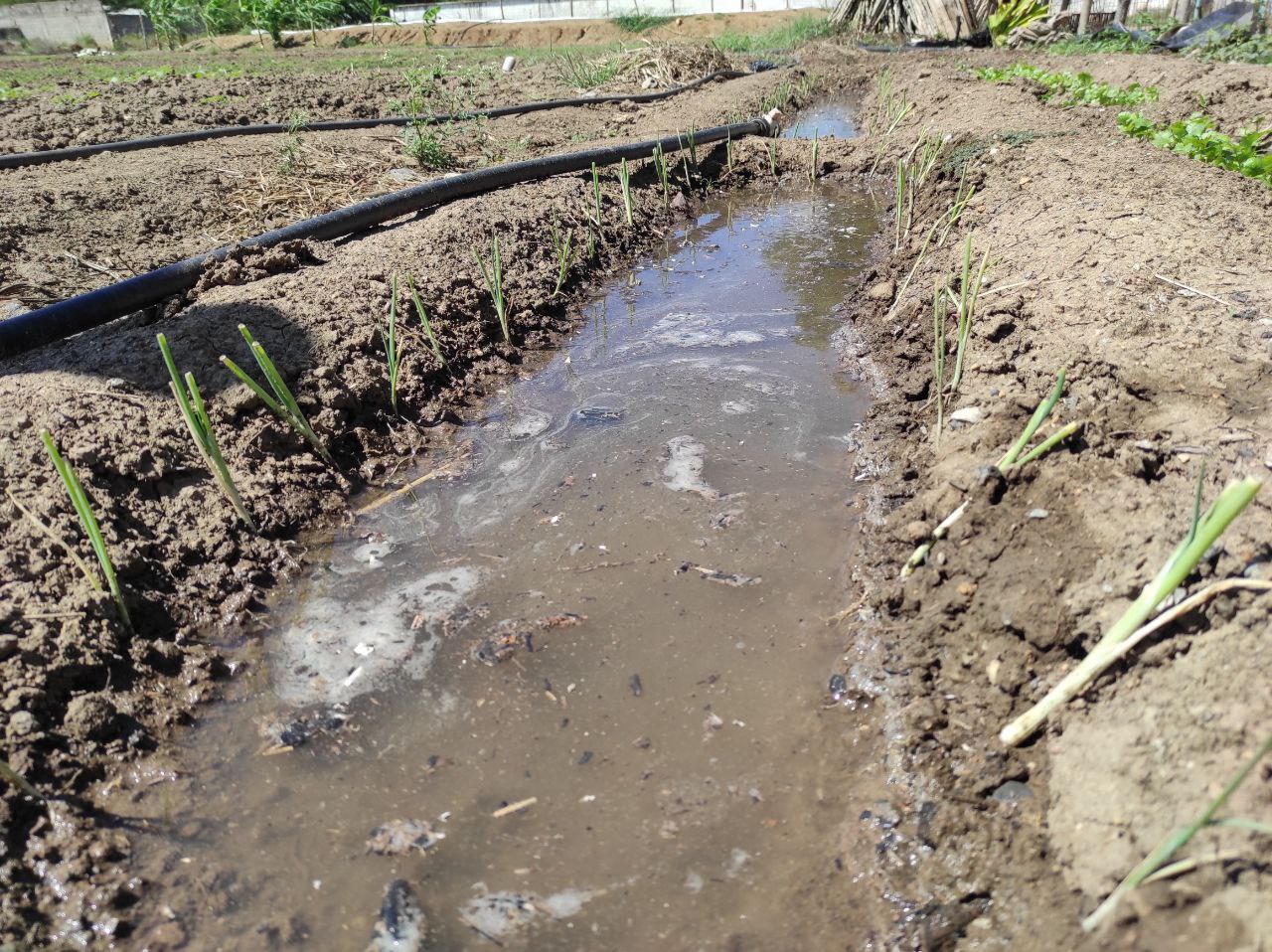
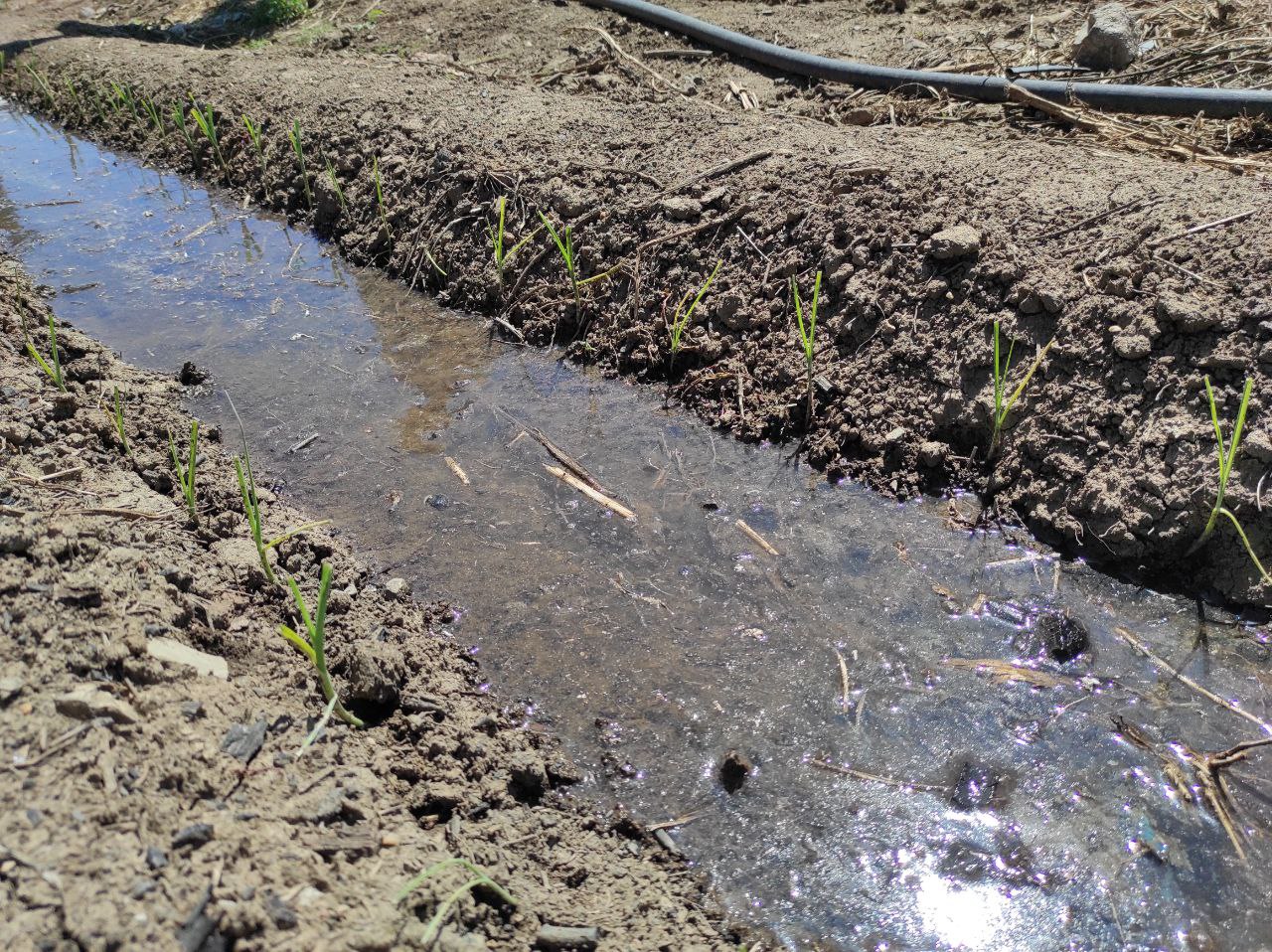
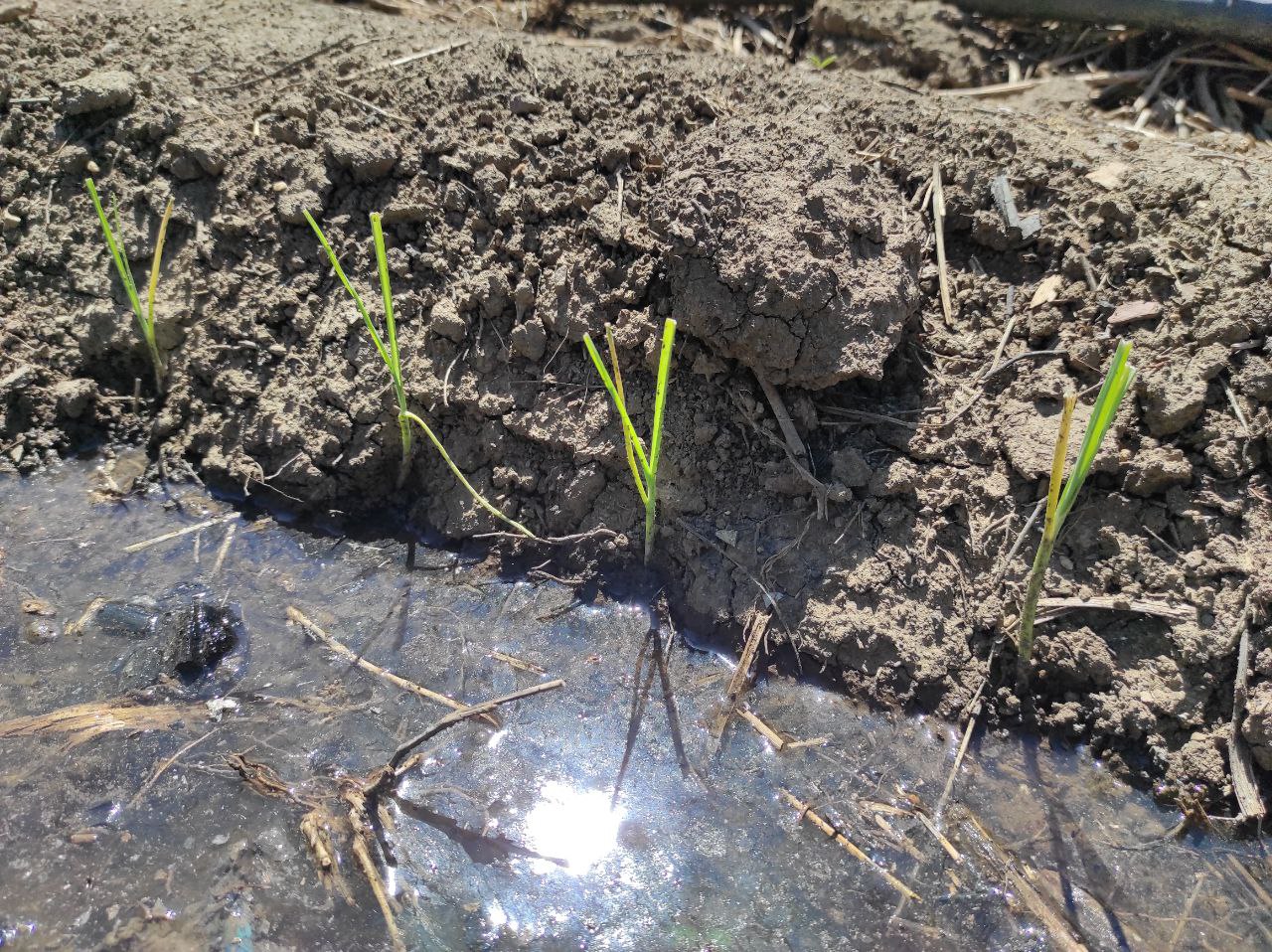
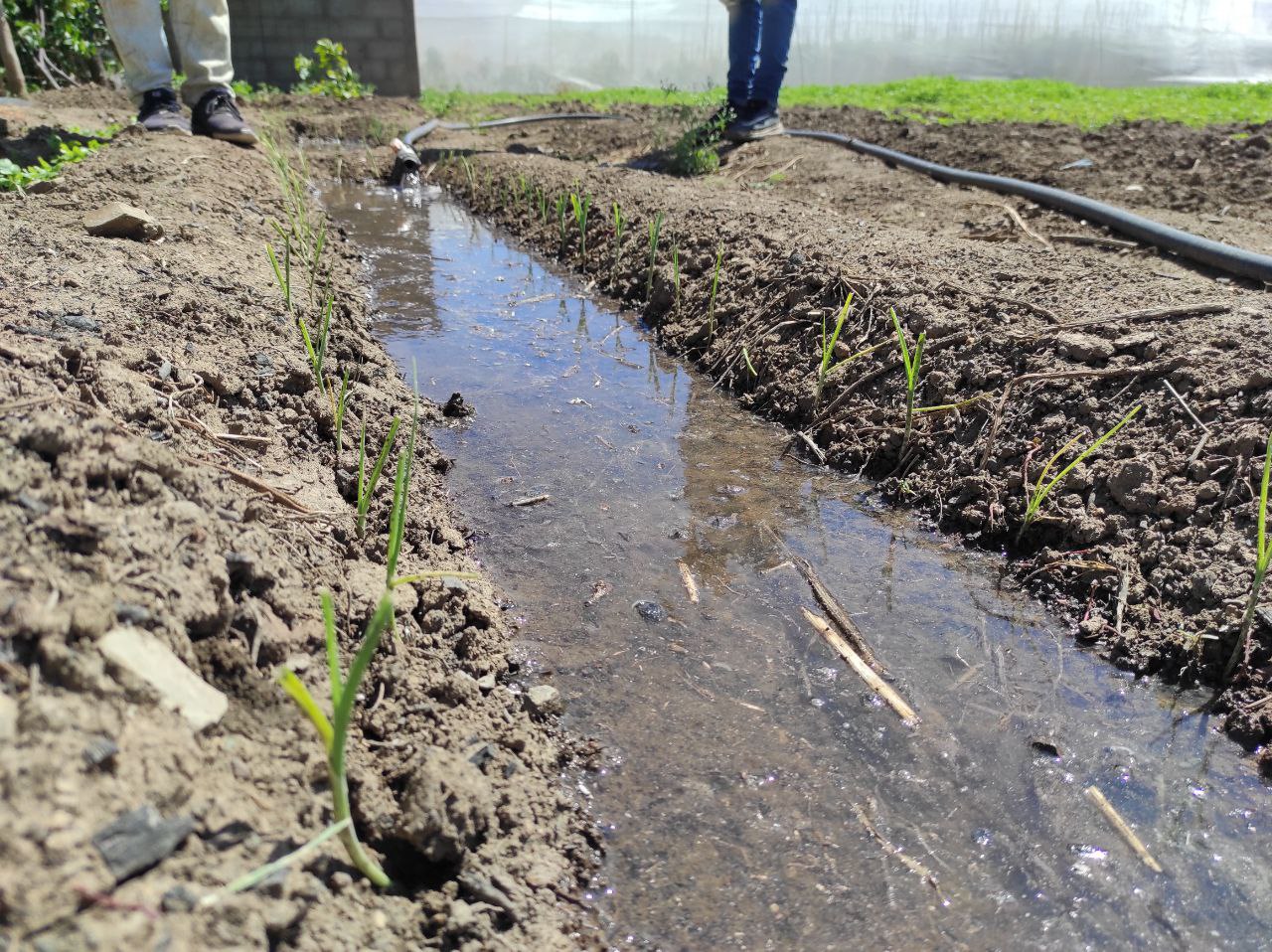
Aquí estaban preparando 1 hectárea, para sembrar el cebollín de la foto, aproximadamente 200grm el equivalente a una lata.
Here they were preparing 1 hectare, to plant the chives in the photo, approximately 200grm, the equivalent of a can.
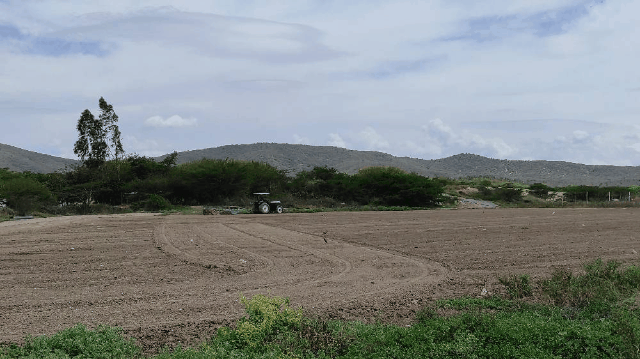
Esperamos que esta pequeña parte del jardín crezca muy bien, y todo esto lo tendremos para nuestro consumo y de nuestros trabajadores.
Nos vemos en unos meses y verán el resultado.
We hope that this small part of the garden will grow very well, and we will have all this for our consumption and that of our workers.
See you in a few months and you will see the result.
thank youu<3 @EwkaW 🥰
Hi, please can you read our updated community rules? Will vote this one but just so you know in future. Hope you understand. 🌱💚
ohh thank you for informing me, I didn't know them for sure, if I have any question I should ask it directly in the post, right?
Yes, @wesp05. That's okay, we've only just made them super clear, so don't worry - just make sure you know for next time.
Check it out here - https://peakd.com/hive-140635/@gardenhive/a-little-bit-of-housekeeping-establishing-community-guidelines
Qué precioso!! Lo hermoso que es trabajar con la tierra! Veo que el post te ha tomado su lindo tiempo, desde la preparación de la tierra hasta obtener los cebollines. Todo quedó bellísimo y muy prolijo, desde el terreno de cultivo, hasta el fin de esa parte del proceso.
Muchas gracias por brindarle tanta dedicación en tiempo a este post, que ha esperado sus buenas semanas para darse a conocer!
Muchas gracias, que genial que te haya gustado.
Sabes cada post a veces me toma mínimo 2 meses hacerlo, o por lo menos 2 semanas y me refiero en esperar para ver el cambio, por que usualmente fotografió todos mis cultivos, desde pequeños hasta grandes y así puedo subir el proceso completo.
Del resto en texto un poco desordenado, pero se entiende la idea
Te entiendo!! Yo solía hacer lo mismo!! Germinaba la semilla e iba sacando foto desde ese momento, durante todo el proceso, hasta sus primeras hojitas y cuando la planta o árbol iba creciendo. Por eso valoré tanta dedicación en tu post ☺️
I love the raised bed, I love the soil too! Good afternoon!
Thanks, it looks a bit cool
You're welcome (^_^)
Espectacular... Felicidades
Magnifico todo ese trabajo amigo. Woow, me quedé sorprendido por lo hermoso de la huerta.